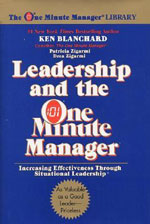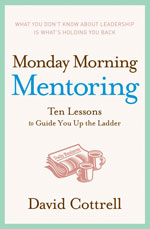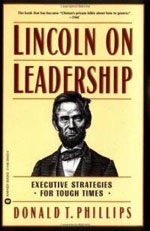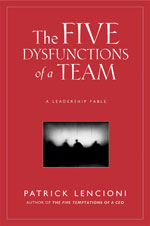 Imagine for a moment two salespeople, John and Bob, who are learning to sell a new product. John and Bob are equally talented salespeople, and when they sit down to practice their sales process, they both give the same intense determination to the honing of their craft. Really, the only notable difference between these two salespeople is that Bob is devoted exclusively to the Sandler sales process, while John likes to bounce back and forth between different sales processes. Who do you think will be more successful? I put my money on Bob. He has a characteristic I like to call “grit.” Bob dives deep into his pursuit of Sandler mastery, and such a focused individual is bound to surpass scattered John, whose divided attention relegates him to a life of coming in second.
Imagine for a moment two salespeople, John and Bob, who are learning to sell a new product. John and Bob are equally talented salespeople, and when they sit down to practice their sales process, they both give the same intense determination to the honing of their craft. Really, the only notable difference between these two salespeople is that Bob is devoted exclusively to the Sandler sales process, while John likes to bounce back and forth between different sales processes. Who do you think will be more successful? I put my money on Bob. He has a characteristic I like to call “grit.” Bob dives deep into his pursuit of Sandler mastery, and such a focused individual is bound to surpass scattered John, whose divided attention relegates him to a life of coming in second.
What is grit? That’s what I want to talk about today.
Grit can be defined as: “perseverance and passion for long-term goals.” Winston Churchill hit the nail on the head regarding grit when he said, “Success is the ability to go from one failure to another with no loss of enthusiasm.” More and more research is showing that intelligence is no longer the greatest predictor of success in school, work, and life. Success is largely determined by how much grit we have—how strong our ability is to push through adversity, challenges, and setbacks in order to find a new solution or path to success. According to TED speaker Angela Lee Duckworth, grit is the key to success, and I don’t think there are many people out there who’d disagree with her.
Angela Duckworth, a psychology professor at the University of Pennsylvania, describes grit in the following way: “Grit is having stamina. Grit is sticking with your future, day in and day out. Not just for the week, not just for the month, but for years… Grit is having stamina and living life like it’s a marathon—not a sprint.”
Dr. Duckworth also discovered that “Smarter students actually had less grit than their peers who scored lower on an intelligence test. This finding suggests that, among the study participants—all students at an Ivy League school, people who are not as bright as their peers ‘compensate by working harder and with more determination.’ And their effort pays off: the grittiest students—not the smartest ones—had the highest GPAs.”
And, “At the elite United States Military Academy, West Point, a cadet’s grit score was the best predictor of success in the rigorous summer training program known as ‘Beast Barracks.’ Grit mattered more than intelligence, leadership ability, or physical fitness. At the Scripps National Spelling Bee, the grittiest contestants were the most likely to advance to the finals—at least in part because they studied longer, not because they were smarter or were better spellers.”
Grit is the key.
The problem with grit is that it has an ugly side. Grit involves getting up close and personal with failure, over and over and over again. Most of us can only take grit in small doses. Grit is the slow burn over time that nearly annihilates you. But, it’s the best indicator for success. Again, research shows that, in every field, grit is just as important as talent, if not more so.
Grit is something deep within you. It’s the soul of your work that only you can access.
Grit is inspiring. It means standing firm against relentless waves of failure, enduring 1,000 people saying no in order to find that one who says YES!
Grit has taught me that no one will believe in me unless I firmly believe in myself.
I believe grit is possible to develop. Here are five suggestions that can help you develop mental fortitude and tougher-than-nails grit:
1. Develop meaningful long-term goals and share them with people who care about you. People with grit pursue goals with determination.
2. Eliminate negative self-limiting beliefs. Remove “I’ll never be able to do this,” “I can’t,” and other negative self-talk from your internal dialogue.
3. Adopt a growth mindset. The ability to learn should never become dormant. Instead, always look for ways to grow. Never settle for “good enough.”
4. Consider failure a temporary stumbling block. People with grit understand that failure isn’t a permanent state—gritty people learn from their failures and move on.
5. Eliminate negative influences. Negativity is contagious, so surround yourself with people who will encourage and motivate you instead of those with a “can’t do” attitude. Positive influences will keep you going when things get tough.
As stated best by an anonymous Navy SEAL Master Chief, “It takes a little courage, and a little self-control. And some grim determination, if you want to reach the goal. It takes a great deal of striving, and a firm and stern-set chin. No matter what the battle, if you really want to win, there’s no easy path to glory. There is no road to fame. Life, however we may view it, is no simple parlor game; but its prizes call for fighting, for endurance and for grit; for a rugged disposition that will not quit.”
Dr. Duckworth has developed a test called the “Grit Scale.” Take the short quiz for yourself and see how gritty you are compared with the general public. Also, watch her motivational TED talk below.

















